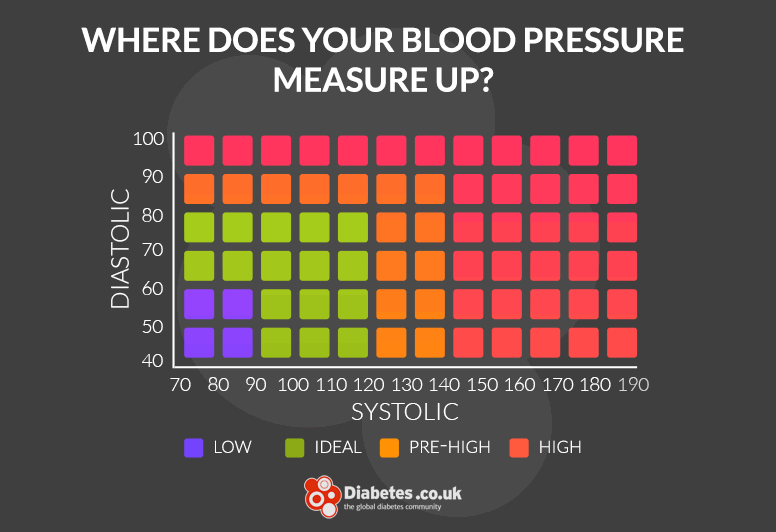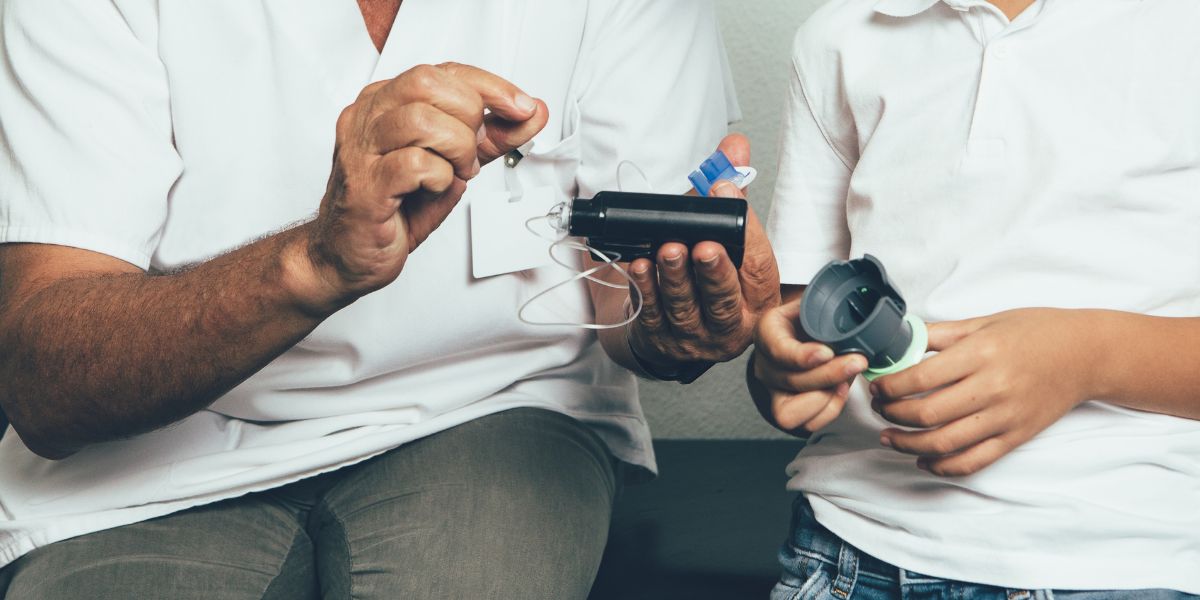Blood pressure control is important whether you have diabetes or not.
However, having high blood pressure is a key risk factor in developing heart disease, stroke and other complications of diabetes.
Diabetes and high blood pressure are often associated, and many people with diabetes take medication to lower their blood pressure.
What is blood pressure?
Blood pressure means the pressure of blood in your arteries as it is being pumped by the heart.
Targets for people with type 1 diabetes
The targets for people with type 1 diabetes is to have a resting blood pressure level below 135/85 mmHg
If you have signs of kidney disease or metabolic syndrome your blood pressure level should be below 130/80 mmHg
Targets for people with type 2 diabetes
The target blood pressure targets for type 2 diabetes:
- Below 140/80 mmHg
- Or below 130/80 mmHg if you have kidney disease, retinopathy or have cerebrovascular disease (including stroke)
What are the symptoms of high blood pressure?
Most diabetics with high blood pressure have no symptoms.
However, very high blood pressure or rapidly rising blood pressure can cause:
- Headaches
- Vision problems
- Nose bleeds
- Trouble breathing
- Fits
- Black-outs
What are the symptoms of low blood pressure?
Similar to high blood pressure, the symptoms of low pressure may not always be apparent. If you do get symptoms, they may be identified as any of the following:
- Feeling dizzy, light headed or fainting
- Blurred vision
- A rapid or irregular heartbeat
- Feeling nauseous
- Confusion
What do blood pressure numbers mean?
Blood pressure is measured in millimetres of mercury, as two figures, for example 124/80 mmHg.
- The first number (124 in this case) is known as systolic pressure – pressure in the arteries when the heart contracts.
- The second number (80 here) is diastolic pressure – the pressure in the arteries when the heart rests.
At what point does high blood pressure cause a problem for people with diabetes?
If your resting blood pressure level is above the targets, this puts you at an increased risk of heart and vascular problems as well as other diabetes complications, such as kidney disease and sight damage ( retinopathy ).
High blood pressure is also associated with poor circulation which increases the risk of foot ulcers and can lead to foot amputation if regular foot care is not taken.
How is high blood pressure diagnosed?
Anxiety, stress or strenuous exercise can all cause temporary high blood pressure levels in both diabetics and non-diabetics. However, high blood pressure is diagnosed when you have several high readings.
Some people will find their heart beat rises, and therefore their blood pressure goes up, as a direct result of being tested. If you know this is happening, speak to the doctor or nurse as this should be taken into account.
It is possible to have blood pressure readings taken at home if this is known to be happening.

How is high blood pressure caused?
Too high blood pressure tends to result from a build up of cholesterol within the walls of blood vessels. This causes narrowing of the blood vessels, restricting blood flow and raising blood pressure.
Narrowed arteries raises the risk of heart problems and stroke if too little blood gets to these vital organs or if a blood clot blocks the blood flow to them.
Sometimes, other conditions can cause high blood pressure such as diabetic nephropathy, kidney or hormone problems.
How common is high blood pressure amongst diabetics?
Approximately 3 in 10 people with type 1 diabetes and around 8 in 10 people with type 2 diabetes develop high blood pressure at some stage of their life.
The level of high blood pressure risk goes up for people of African-Caribbean or Indian origin.
Furthermore, risk increases for those who are overweight, eat low fruit and vegetable levels, don’t take much exercise or drink regularly.
What tests are used to diagnose high blood pressure?
Urine tests can check for protein or blood in urine, blood tests can check kidney function or cholesterol, and an ECG can trace heartbeat.
I am diabetic, why should high blood pressure worry me?
High blood pressure increases risks of developing cardiovascular disease and kidney damage. High blood pressure may damage arteries and strain the heart over the years.
Other diabetes complications may be more common if you have high blood pressure, including diabetic retinopathy.
How can I lower blood pressure whilst managing my diabetes?
There are various ways to lower blood pressure, including modifying lifestyle and medication. Losing weight makes a big difference to blood pressure.
Taking regular physical exercise also makes a big difference to blood pressure. Lowering salt intake also makes a major difference to blood pressure, as does eating a more healthy diet in general.
Furthermore, cutting down alcohol and stopping smoking can also lower blood pressure amongst diabetics. Drug treatment is used in some instances, with several different drugs used to lower blood pressure.


